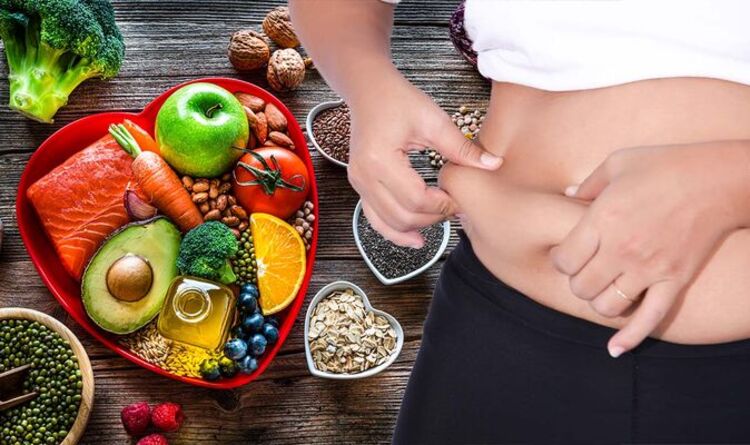Dr Zoe Williams discusses visceral fat on This Morning
We use your sign-up to provide content in ways you’ve consented to and to improve our understanding of you. This may include adverts from us and 3rd parties based on our understanding. You can unsubscribe at any time. More info
Stored deeps inside your abdominal cavity, visceral fat houses some of your vital organs, including the liver, kidney and intestines. This precarious location means that the fat can lead to health conditions, varying from heart disease to diabetes.
Different from subcutaneous fat, visceral fat isn’t exactly the jiggly substance you can pinch with your fingers.
This type of fat is hidden, lurking deep inside your belly. What’s worse, it can release harmful chemicals into your bloodstream.
Eventually, visceral fat can leave you with an unwanted souvenir in the form of health problems.
While eating your way out of this might seem too good to be true, research shows that it might just work if you stick to certain rules.

One carbohydrate that can help you lose the belly fat “fast” is soluble fibre, according to Holland and Barrett.
Fibre, in general, describes the parts of plant foods your body can’t digest or absorb.
Soluble fibre is a specific type of this carb that dissolves in water to form a gel-like material, the Mayo Clinic details.
Apart from promoting your gut health and busting cholesterol, this type can also see your visceral fat levels drop, according to a study published in the journal Obesity.
This research found that soluble fibre in combination with exercise can be very potent for shedding the harmful fat.
The study reported: “For each 10 gram increase in soluble fibre, rate of VAT [visceral adipose tissue] accumulation decreased by 3.7 percent.”
When the researchers combined soluble fibre with exercise, the decrease reached as much as 7.4 percent in moderately active participants.
However, the study saw no impacts on subcutaneous fat – the one residing just beneath your skin.

To illustrate how much you need to eat, 10 grams could be achieved by having two small apples, one cup of green peas and one-half cup of pinto beans, according to Kristen Hairston, lead researcher on the study.
While moderate activity describes exercising vigorously for 30 minutes, two to four times a week.
One reason why fibre could assist weight loss is satiety.
Holland and Barrett explained: “It helps you feel fuller for longer, so you end up eating less and not snacking excessively.”

What foods contain soluble fibre?
The Mayo Clinic explains that this type can be found in the likes of:
- Oats
- Peas
- Beans
- Apples
- Citrus fruits
- Carrots
- Barley
- Psyllium.
The health portal recommends eating a greater variety to get the best benefits.
Although 10 grams could make a difference to your visceral fat, the NHS states your recommended daily intake should be 30 grams of dietary fibre.
Source: Read Full Article
